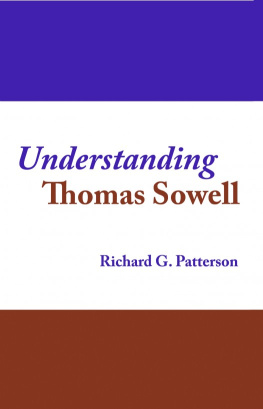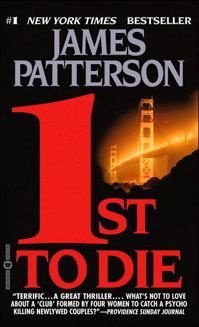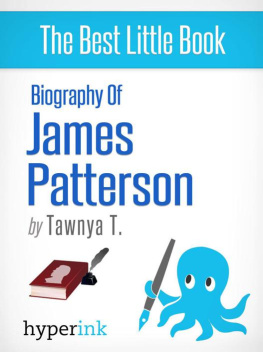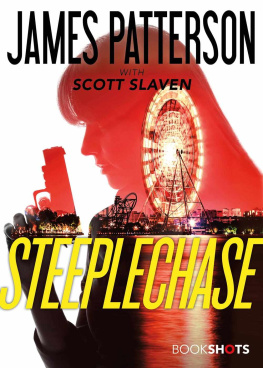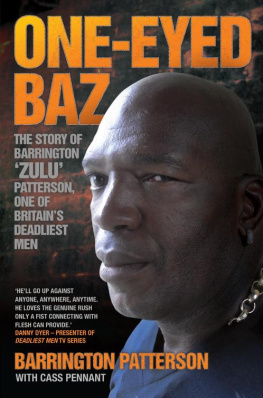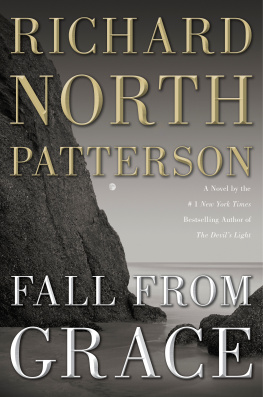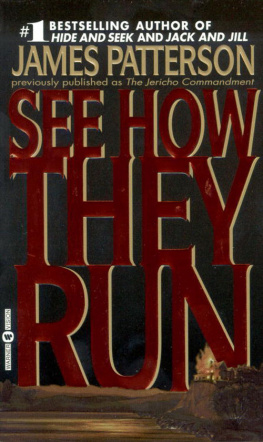Richard Patterson - The Lasko Tangent
Here you can read online Richard Patterson - The Lasko Tangent full text of the book (entire story) in english for free. Download pdf and epub, get meaning, cover and reviews about this ebook. genre: Detective and thriller. Description of the work, (preface) as well as reviews are available. Best literature library LitArk.com created for fans of good reading and offers a wide selection of genres:
Romance novel
Science fiction
Adventure
Detective
Science
History
Home and family
Prose
Art
Politics
Computer
Non-fiction
Religion
Business
Children
Humor
Choose a favorite category and find really read worthwhile books. Enjoy immersion in the world of imagination, feel the emotions of the characters or learn something new for yourself, make an fascinating discovery.

- Book:The Lasko Tangent
- Author:
- Genre:
- Rating:3 / 5
- Favourites:Add to favourites
- Your mark:
- 60
- 1
- 2
- 3
- 4
- 5
The Lasko Tangent: summary, description and annotation
We offer to read an annotation, description, summary or preface (depends on what the author of the book "The Lasko Tangent" wrote himself). If you haven't found the necessary information about the book — write in the comments, we will try to find it.
The Lasko Tangent — read online for free the complete book (whole text) full work
Below is the text of the book, divided by pages. System saving the place of the last page read, allows you to conveniently read the book "The Lasko Tangent" online for free, without having to search again every time where you left off. Put a bookmark, and you can go to the page where you finished reading at any time.
Font size:
Interval:
Bookmark:
Richard North Patterson
The Lasko Tangent
One
It was the Monday morning before they killed him. I didnt know then that he existed. Or that I would help change that. I dealt with swindlers, not killers.
I was crossing Capitol Hill, the part that looks down Pennsylvania Avenue toward the White House. It was only ten minutes since Id left my apartment, but already the morning clung to my shirt. The air felt like steam in a closed bathroom after a hot shower. A torpid sun seeped through a haze of humidity and fetid exhaust fumes. Washington August, thermal inversion time.
Three years had programmed me for the walk. It took me across Constitution Avenue toward D Street, past the fountain and the reflecting pool. The cherry trees which lined the walk had long since lost their blossoms and had a tired disappointed look. On the other side of D Street sat the square opulence of the white marble Teamsters office, built for deserving officers by grateful members.
I turned down D Street and walked toward a huge cement building of New Deal vintage with hundreds of glass windows. A blue and white sign in front read United States Economic Crimes Commission. Pushing through the glass doors, I flipped my ID card to the black, uniformed officer who guarded the agency from the public and other subversives. Cerberus at the gate. His obsidian eyes regarded me impassively. Daily, I tried to imagine what he thought. Daily, I failed. He pushed back the card.
Thank you, Officer Davis.
Thank you, Mr. Paget.
I cut through the artificial wood lobby and took the elevator to the third floor, marked Prosecutions Bureau by a smaller blue and white sign. The bureau handled the big stock frauds, consumer swindles, and political corruption cases, choice stuff for the dedicated public servant. But the three years had made a difference. I straggled toward my office, in no hurry.
On this floor, the paneling had been swapped for grey cinder blocks which lined corridors as crabbed as a rats maze. I walked through the grey catacombs and past the door marked Special Investigations Section. Inside was a large open room jammed with metal desks and secretaries and bordered by offices. The section was packed; two happy faces peered out of each office. I glanced over my shoulder at the schoolroom-type clock. 9:15. I was late again. I went to the office marked Christopher Kenyon Paget, Trial Attorney, walked across my grey tile government rug to my armchair of specially molded indestructible grey plastic, and sat at my antique grey metal desk.
My secretary peered in gingerly, as if testing the atmosphere with her forehead.
Good morning, Chris.
Good morning, yourself. But I smiled. I liked Debbie-and she could type. Among the ECC secretaries, that was a rare combination. She smiled back and stood in the doorway.
How have you been?
Peachy. As a matter of fact, I was just surveying my kingdom. Hows the coffee this morning?
Whats this thing you have about the coffee?
If Id ever tasted Woolite stirred with a cow chip, I imagine Id know. The corners of her mouth cracked upwards, then broke into a smile. She was dark and pretty and had a prettier smile. I liked to see it.
Youre in a good mood.
I spent last night thinking about what McGuire did to the Hartex case. I shouldnt let myself do that.
She shook her head in exaggerated disapproval. Misplaced idealism. Have you ever thought about chucking it all and joining the Reverend Moon?
That fat little maharishi is more my type. Anyhow, Im probably too large a spiritual problem for any one religion. She smiled again. Speaking of which, I added, if you have to perform an exorcism on that coffee, do it.
You can try the coffee at McGuires office. He called for you ten minutes ago.
I wasnt in the mood. Whats it about?
He didnt consult me, she said dryly. Just sounded annoyed that you were late.
I got up and headed reluctantly out the door.
McGuires office was located off another central area. These offices had wooden desks, upholstered chairs, and, as further marks of federal status, featured single occupancy and an unobstructed view of Capitol Hill. The blue sign near McGuires door read Joseph P. McGuire, Chief, Prosecutions Bureau. Next to the sign was Joseph P. McGuire himself, staring fiercely out of a framed Newsweek cover entitled The ECCs Tough Enforcer. Grouped around this were several pictures of McGuire in conference with other great men, such as Lyndon B. Johnson. The bare spot in the middle of the collection represented Richard Nixon, now an unperson.
Directly below sat the curator of this cult of personality, McGuires secretary, blonde, chubby, and fortyish. As always, she looked like a complacent munchkin. She swiveled her round little body in my direction. Mr. McGuire is waiting for you, with Mr. Feiner, she said in her round little voice. In this case, it carried a tinge of disapproval.
Am I late? I asked innocently.
Her round little eyes narrowed, and her tone flattened out. You can go right in.
I complied.
McGuires office was standard federal executive: plastic wood paneling, a money green rug, wooden desk and conference table, and Venetian blinds. Save for an inscribed pen set-a gift from his staff-the desk was bare of personalizing touches, and the walls were as stark. The total effect was that of a room rented by the month.
The only fixture in the place was McGuire. He sat at the end of the conference table, fidgeting with an air of impatient expectancy. McGuire was the only man I knew who could pace sitting down. But for this and piercing blue eyes, he could have passed for a struggling encyclopedia salesman. He had red-brown hair and a middle-aging potbelly hung on an average frame. His clothes were a baggy afterthought. But McGuire somehow invested these plain materials with an arresting vitality. Even his paunch seemed aggressive.
My immediate boss was there to provide an audience. Feiner had black curly hair and the rapt ascetic look of a man seized by some compelling inner vision. It had taken me about two months acquaintance to perceive that the inner vision involved McGuires job. McGuire was either too self-obsessed to notice or too secure to care; he let Feiner dog him like a skinny shadow. I suspected that McGuire was fonder of pets than people.
Weve got something big here. McGuire spoke in bursts, as if complex sentences required too much patience. Where the hell were you?
Conferring with my secretary. I sat facing McGuire and tried for an expression of polite interest. What have you got?
McGuire stared at me a moment longer, as if Id insulted him. Then he leaned back from the table and eyed the ceiling, as if gathering his thoughts. Feiner assumed an expression of grave attention. This is a very sensitive thing, McGuire began.
I was surprised. Sensitive was not in McGuires standard lexicon, in any context. Why?
Do you know William Lasko? McGuire asked.
Sure. The Presidents favorite industrialist.
McGuire nodded. We got a tip while you were gone that someone was playing some games with the price of his companys stock.
Whos we?
Me. Someone called me last week.
I was interested in spite of myself. And thats all he told you?
Yes.
I glanced at Feiner. What about Ikes market watch people? They spot any pattern in the stock?
No.
Any idea who called?
No. He wouldnt say.
Did he tell you enough to let you guess?
No. McGuire looked edgy, like a man being forced to play Twenty Questions with his twelve-year-old son. He disguised his voice. Ive told you all I know.
Its not much.
It was intended as a statement of fact. But McGuire took it as criticism. His eyes bored in. We cant let this go. Laskos controversial. If I dont check this out and then get caught with my pants down, Ill have to answer over on the Hill. McGuire was using his usual institutional I. The motive had a tired familiarity. This thing has to be done carefully. No wild charges and no one pissed off. And I want a report on every new development.
Font size:
Interval:
Bookmark:
Similar books «The Lasko Tangent»
Look at similar books to The Lasko Tangent. We have selected literature similar in name and meaning in the hope of providing readers with more options to find new, interesting, not yet read works.
Discussion, reviews of the book The Lasko Tangent and just readers' own opinions. Leave your comments, write what you think about the work, its meaning or the main characters. Specify what exactly you liked and what you didn't like, and why you think so.

